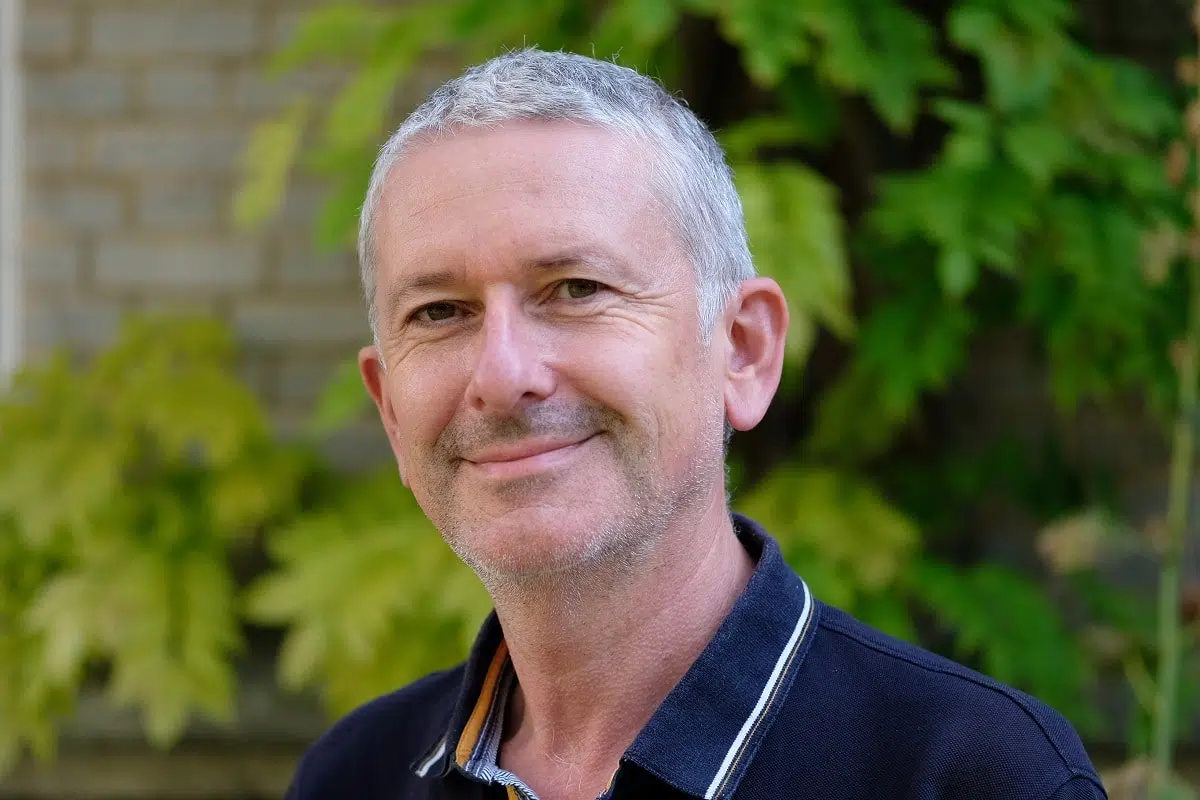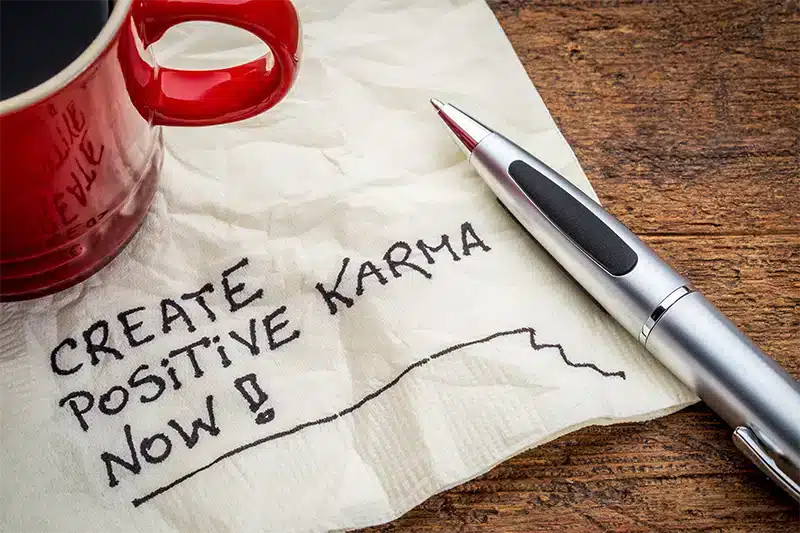Karmic creations
Or how to talk in a few words about this now popularly known notion most often used to talk about others: “It’s your karma, man!”

Écrit par Damien Brohon
Blog | Culture and tradition | The Dzogchen basics
In “Karmic creations”, Damien talks about karma and what this Sanskrit term means beyond the simplistic expression: it’s your karma, man!


KARMIC CREATIONS
While the celestial azure remains motionless, peaks of immaculate snow, still dozing houses and rows of trees pass by the window of the TGV. I write these few words after spending a week of retreat in a place of silence, lost in the countryside, slipping like a miracle among farms, fields and woods. Proud birds of prey fly over it, deer sometimes approach it timidly and, above all, there, everything helps to take a direct look at the workings of the mind. During these few days, directly observing my mind was my main focus. I observed what conditions it but also its true nature, which transcends all conditioning. This is what the practice of Dzogchen allows. It offers to go look and see how the mind is not reduced to the thoughts and emotions that occupy it, but is essentially an infinitely open, free and luminous space. And deep joy.
“
(…) thoughts and emotions are seen as reality itself, when it is only our version of reality. We have created this, we have created a limited image of life and thus built our own prison.
This is what I think about in the in-between that constitutes the journey back to my familiar universe. I’m still steeped in those days of practice but the talks I hear, the emails I’ve accumulated over an entire week that I’ve just read, or even the news headlines seem to want to bring me back to “normal”, if by this is meant the routine functioning of the mind.
Or not.
There is nothing fatal about this, because it is always possible to return to this lucidity of mind. The retreat or the formal practice session are those privileged moments when one recognizes and becomes familiar with the nature of the mind to learn to see that in every moment it is present and, in fact, more real than anything else. Sometimes we recognize that. Sometimes we miss it. In the latter case, it is our conditioning that takes over: thoughts and emotions are seen as reality itself, when it is only our version of reality. We have created this, we have created a limited image of life and thus built our own prison. This is what is called in Sanskrit karma whose root (Indo-European) is KR which gives in English create.

Let’s take an example: if I tend to anger, the situations and people I encounter will seem “naturally” irritating to me and the appropriate response to them will “spontaneously” take the form of confrontation and the reactions of rejection provoked by this behavior will confirm to me that, yes, things and situations are very irritating “objectively”, etc.
A possible, common, translation of this term karma is action: thus we designate the act of our body, speech and mind and the intention associated with it. Angry action and intention (to use this example) create a world that is angry, claustrophobic and explosive at the same time. And one can spend a whole life – or even several – locked in the compulsive reproduction of this pattern of suffering.

This process is circular and tends to constantly self-produce and self-confirm. The more we try to confirm our illusory representations of ourselves and our world, the more we act guided by them and the more we suffer because they do not coincide with reality. But we continue to cling to it because in this infernal logic, no other horizon is emerging. There is no alternative. This habituation and this suffering thus permeate our whole experience of life, masking the possibility of recognizing our true nature.
The aim of practice is precisely to put this process on hold by looking at it directly, ceasing to undergo it as a fatality. It frees us from what we believe to be ourselves, because according to the Great Perfection this karmic process has no more reality than a mirage which dissipates as we approach it.
Here is how to speak in a few words of this notion now popularly known and most often used to talk about others: “C’est ton karma, mec !“
